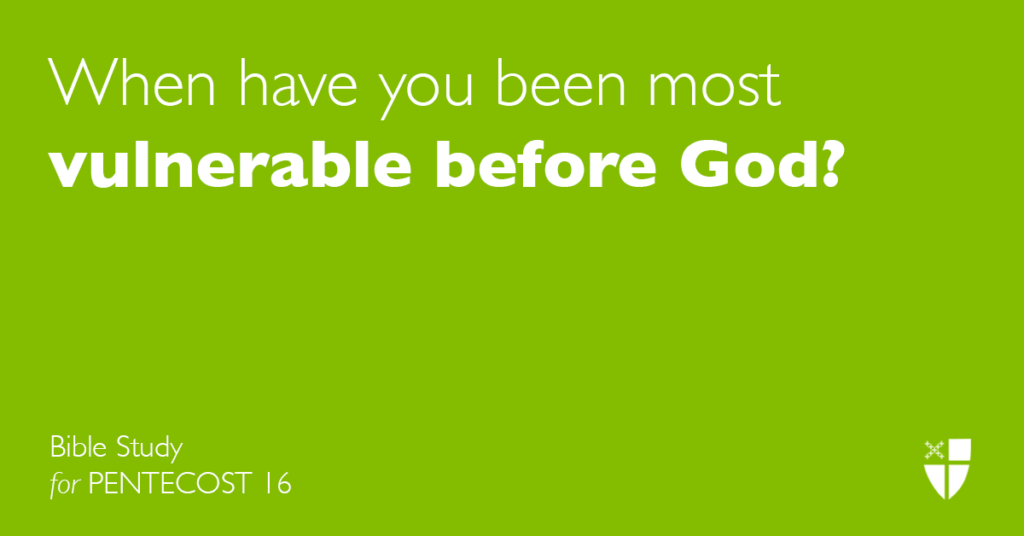This page is available in: Español
Bible Study: Proper 21 (C) – 2019
September 29, 2019
Jeremiah 32:1-3a, 6-15

This reading from Jeremiah finds us at a time of certainty: certainty that Jerusalem is about to be destroyed. Nebuchadrezzar, king of Babylon, is besieging Jerusalem and its fall is a forgone conclusion. This is not the time to invest in real estate. However, Jeremiah purchases a field from his cousin, Hanamel, to keep the land in his family. And while this action is in obedience to Levitical law (Lev. 25:23-28, NRSV), to most people the idea of following this law when invasion of the land and exile of her people are imminent would be absurd. However, Jeremiah knows that God plays the long ball. He knows that while despair, fear, and suffering are overwhelming present realities, hope is the ultimate reality because of God’s guiding hand. Even though Jerusalem will be destroyed, it will eventually be restored: “Houses and fields,” says the Lord, “and vineyards shall again be bought in this land” (Jer. 32:15). Times of uncertainty and despair are unfortunate realities in our lives. However, our lives are not locked into the consequences of a single moment. God is always present and because of that, our lives are lives of hope.
- When you look at your life, where do you see moments when you didn’t see hope? How did God guide you through these moments?
Psalm 91:1-6, 14-16
There are a lot of things that stalk us “in the darkness” (Ps. 91:6, BCP), things that unnerve us or disturb our peace. But what makes our faith so hopeful is the fact that God invites us to share all of that with God. God is not some abstract and nebulous idea, but a reality that humanity is bound to in love (Ps. 91:14). God hears us in our times of struggle. God participates in our lives. God does not detach. God is our refuge, our eternal, immovable refuge, that comforts and softly embraces us as a hen embraces her chicks (Mt. 23:37 and Lk. 13:34). How fortunate we are to have such a devoted friend who walks with us in every step of our lives!
- When have you been most vulnerable before God?
- How has God comforted you?
1 Timothy 6:6-19
A simple life, a life unencumbered by material possessions, is a life worth living. In many ways, the author of 1 Timothy seems to be channeling the current minimalist movement in our society because the author understands the corrupting influence of money and possessions; they lead to “senseless and harmful desires that plunge people into ruin and destruction” (1 Tim. 6:9, NRSV). However, these things are not just secular temptations that lead to the degradation of our environment and the dilution of relationships. These are the very things that pollute our relationship with God. It is cliché to state that wealth and power ebb and flow; that possessions that excite us one minute bore us the next; that external objects can never fully bring internal contentment. Clichés, though, are often clichés because they are true.
God’s love for us is never obsolete. It never breaks down. It is infinitely abundant and freely available. It does not need a Groupon and can be shared generously. And that’s the operative term: generously. When we learn to live fully into God’s generous love, we learn to live more fully into our own generosity. We learn that to give is to receive. When we give generously, we spread the Kingdom of God that benefits everyone.
- What does it mean that “God “richly provides us with everything for our enjoyment” (1 Tim. 6:17)?
Luke 16:19-31
The lectionary is a gift! Our readings tie so well together this week. If you don’t get it the first time, you’re going to get it by the last reading!
The rich man failed to live a life of generosity—a life informed by God’s own generosity and commands to care for the poor, vulnerable, and marginalized. Exodus 23:6 and 23:11; Leviticus 19:10, 19:15, and 23:22; and Deuteronomy 10:18 are only a few examples of God’s commands to show compassion and generosity to those who tend to be ignored in society. The rich man ignored the clear commandments from the Torah, choosing, instead, to live a life of self-interested luxury—intentionally ignoring Lazarus, the poor man, who lived right outside his gate. Because of his continual transgression of the law, the rich man is punished while Lazarus is comforted in the afterlife.
In his suffering, the rich man pleads for Abraham to allow Lazarus to go and warn his brothers to live lives of generosity so that they do not end up being punished as well. But Abraham’s reply is clear: “They have Moses and the prophets; they should listen to them” (Lk. 16:29).
Scripture should be the guiding light of our lives – not because we should fear punishment if we do not follow all the rules, but because scripture lets us know what God wants of us: to not only love God but to love one another, to freely and completely share that love, even if it costs us a little comfort. Sharing love is the brick and mortar we use to build the Kingdom of God here on Earth.
- The Torah and the gospels are clear that the marginalized are to be cared for and protected. Where in society do you see this lived out? Where is it needed?
This page is available in: Español
Don’t forget to subscribe to the Sermons That Work podcast to hear this sermon and more on your favorite podcasting app! Recordings are released the Thursday before each liturgical date.
Receive Free Weekly Sermons That Work Resources!
This page is available in: Español


